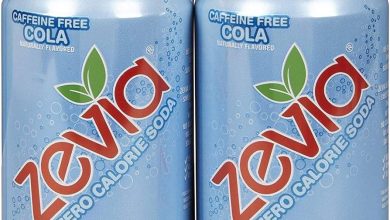Poppy Seeds: Nutritional Information and Health Benefits
Poppy seeds, small yet potent, are a delightful addition to a variety of dishes, providing not only a unique flavor but also a wealth of nutritional benefits. Often used in baking and cooking, these tiny seeds are a powerhouse of energy and nutrients, making them an excellent choice for anyone looking to enhance their meals.
Nutritional Breakdown
Here is a detailed table of the nutritional composition of poppy seeds, showcasing their rich nutrient profile:
| Nutrient | Amount per 100g |
|---|---|
| Energy | 525 kcal |
| Protein | 17.99 g |
| Total Fat | 41.56 g |
| Saturated Fats | 4.517 g |
| Carbohydrates | 28.13 g |
| Dietary Fiber | 19.5 g |
| Sugars | 2.99 g |
| Calcium | 1438 mg |
| Iron | 9.76 mg |
| Magnesium | 347 mg |
| Phosphorus | 870 mg |
| Potassium | 719 mg |
| Sodium | 26 mg |
| Zinc | 7.9 mg |
| Copper | 1.627 mcg |
| Manganese | 6.707 mg |
| Selenium | 13.5 mcg |
| Vitamin C | 1.0 mg |
| Thiamin (B1) | 0.854 mg |
| Riboflavin (B2) | 0.1 mg |
| Niacin (B3) | 0.896 mg |
| Vitamin B6 | 0.247 mg |
| Folate | 82 mcg |
| Vitamin B12 | 0.0 mcg |
| Vitamin A | 0.0 mcg |
| Vitamin E | 1.77 mg |
| Vitamin D2 | 0.0 mcg |
Allergen Information
Poppy seeds are generally safe for most individuals; however, they can cause allergic reactions in rare cases. If you have a history of allergies to seeds or are particularly sensitive, it’s wise to approach with caution. Always consult with a healthcare professional if you have any concerns.
Dietary Preferences
Poppy seeds cater to a variety of dietary preferences, including:
- Vegetarian and Vegan: They are entirely plant-based and can be included in vegetarian and vegan diets.
- Gluten-Free: Naturally gluten-free, poppy seeds are an excellent choice for those with gluten sensitivities or celiac disease.
- Low-Carbohydrate: With a moderate carbohydrate content and high fiber, they can fit into low-carb meal plans when consumed in moderation.
Health Benefits
Incorporating poppy seeds into your diet can offer several health benefits. They are rich in essential minerals such as calcium, iron, and magnesium, all crucial for maintaining bone health, oxygen transport, and metabolic processes. The high fiber content aids in digestion and may help maintain a healthy weight by promoting a feeling of fullness.
The presence of healthy fats, primarily unsaturated fats, supports heart health, while antioxidants found in poppy seeds contribute to reducing oxidative stress in the body. Additionally, their B-vitamin content plays a vital role in energy metabolism and maintaining overall well-being.
Culinary Uses
Poppy seeds can be used in a multitude of ways in the kitchen. They can be sprinkled on top of breads, pastries, or salads for added crunch and flavor. Incorporating them into doughs and batters adds a delightful texture to baked goods. They also work well in dressings, dips, and as a garnish for various dishes, enhancing both visual appeal and taste.
Conclusion
Poppy seeds are not just a decorative element but a nutritional powerhouse that can elevate your culinary creations while providing substantial health benefits. Whether you use them in baking, cooking, or as a topping, incorporating these seeds into your diet is a delicious way to boost your nutrient intake and enjoy the diverse flavors they offer. Embrace the versatility of poppy seeds and let them inspire your next culinary adventure!










